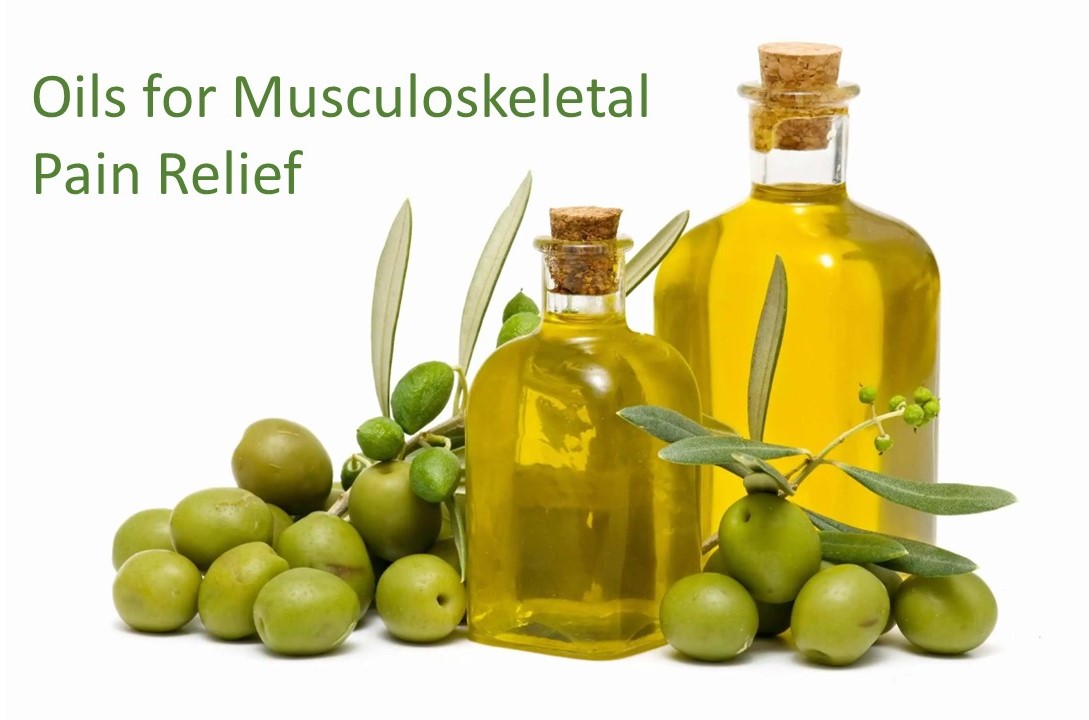Olive oil, fish oil, and even seal oil – you might have heard about these in the context of helping with pain in your muscles and joints. Let’s dive into the studies and see what they say in simple terms.
Olive Oil: Studies have linked olive oil to controlling inflammation, and researchers are looking into its role in managing pain. One study gave patients with osteoarthritis (OA) an olive oil extract rich in polyphenols for 8 weeks. The result? Those who took it reported significant improvement in pain compared to those who didn’t (1).
Fish and Seal Oils: Fish oil and seal oil seem to have some promising effects on reducing musculoskeletal pain. A study in Germany gave cod liver oil to patients with rheumatoid arthritis, and by the end of 3 months, there was a significant decrease in painful joints and reported pain intensity (2). In another study, seal oil helped reduce pain in patients with inflammatory bowel disease-related joint pain (3,4). However, it’s important to note that seal oil is illegal in the United States under the Marine Mammal Protection Act.
Nonmarine Oils: Not all oils from the sea – argan oil, for example – show the same pain-relieving effects. Argan oil, rich in omega-6 and omega-9, was found to significantly decrease pain scores in patients with knee OA (5).
Mixed Results with Olive Oil: While studies on olive oil show mixed results, there’s a suggestion that a combination of fish and olive oils may help. In one study, patients with rheumatoid arthritis saw significant improvements in joint pain when their diets were supplemented with both oils (6).
Omega-3 Fatty Acids: Omega-3 fatty acids, found in fish oil, also play a role. A meta-analysis of studies on patients with rheumatoid arthritis showed that daily omega-3 intake resulted in a reduction in anti-inflammatory drug consumption (7).
Final Thoughts: In a nutshell, oils from the sea, especially fish and seal oils, seem to offer relief from musculoskeletal pain. Olive oil, though mixed in results, might be more effective when combined with other oils. On the other hand, nonmarine oils like argan oil show promise too. However, more research is needed to understand the best balance of omega-3 to omega-6 and the right fatty acid intake for managing musculoskeletal pain.
It’s always a good idea to talk to your doctor before making any big changes to your diet or trying supplements to manage pain.
Reference
1. Bitler CM, Matt K, Irving M, et al. Oliveextract supplement decreases pain and improves daily activities in adults with osteoarthritis and decreases plasma homocysteine in those with rheumatoid arthritis. Nutr Res 2007; 27:470-477
2. Gruenwald J, Graubaum HJ, Harde A. Effect of cod liver oil on symptoms of rheumatoid arthritis. Adv Ther 2002; 19:101-107.
3. Bjørkkjær T, Brunborg LA, Arslan G, et al. Reduced joint pain after short-term duodenal administration of seal oil in patients with inflammatory bowel disease: Comparison with soy oil. Scand J Gastroenterol 2004; 39:1088-1094.
4. Innes JK, Calder PC. Omega-6 fatty acids and inflammation. Prostaglandins Leukot Essent Fatty Acids 2018; 132:41-48.
5. Essouiri J, Harzy T, Benaicha N, Errasf, M, Abourazzak FE. Effectivenes of argan oil consumption on knee osteoarthritis symptoms: A randomized controlled clinical trial. Curr Rheumatol Rev 2017; 13:231-235.
6. Berbert AA, Kondo CRM, Almendra CL, Matsuo T, Dichi I. Supplementation of fish oil and olive oil in patients with rheumatoid arthritis. Nutrition 2005; 21:131-136.
7. Lee YH, Bae SC, Song GG. Omega-3 polyunsaturated fatty acids and the treatment of rheumatoid arthritis: A meta-analysis. Arch Med Res 2012; 43:356-362.

